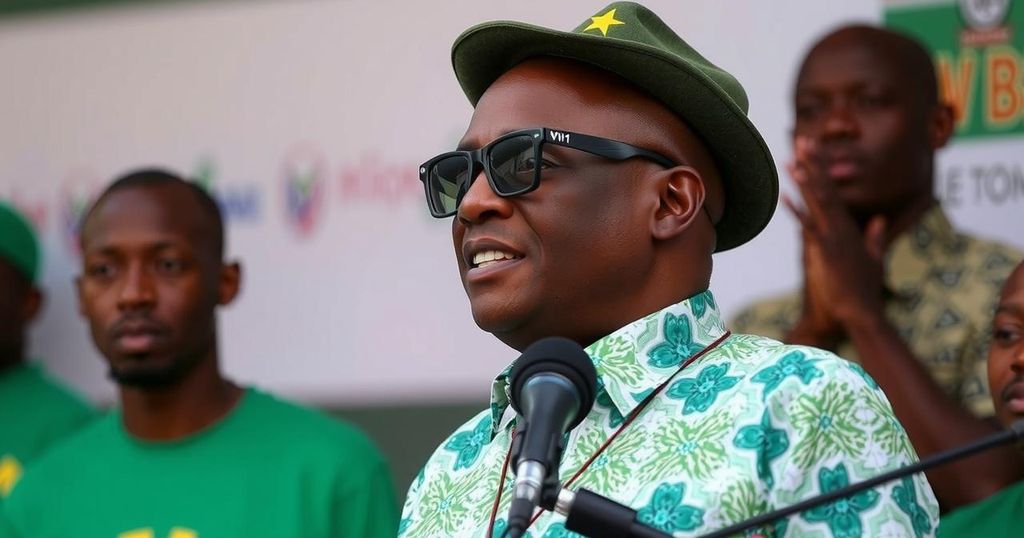Ghana Elections Open Amidst Economic Turmoil and Voter Discontent

Polls opened in Ghana for presidential and legislative elections, marked by economic crisis and voter disillusionment. While 12 candidates compete, the contest is primarily between ruling NPP’s Vice President Bawumia and opposition leader Mahama. Despite a historic reputation for stability, Ghana faces high inflation and unemployment, posing serious challenges to public trust in governance.
On Saturday, polling stations opened in Ghana for the pivotal presidential and legislative elections, regarded as a crucial test for democracy amid a backdrop of rampant economic turmoil. The electorate, comprising approximately 18.7 million registered voters, faces a stark choice between two primary candidates, both representing parties that have repeatedly failed to restore economic stability in the nation, which is notorious for one of its worst economic crises in decades.
Ghana was historically viewed as a champion of democracy in West Africa, having established a solid record of peaceful elections despite the threat of regional coups and extremist violence. However, it is currently grappling with alarming challenges such as soaring inflation and increasing unemployment, straining public sentiment. A recent Afrobarometer survey revealed that 82% of Ghanaians believe their nation is moving in the wrong direction, reflecting widespread disillusionment.
Though 12 candidates are competing for presidency, the election has primarily evolved into a contest between Vice President Mahamudu Bawumia of the ruling New Patriotic Party (NPP) and former President John Dramani Mahama of the National Democratic Congress (NDC). Analysts point out the minimal differences between their platforms, both of which have drastically underwhelmed voters seeking tangible solutions to pressing economic issues.
The election also includes the selection of 276 members of parliament, with the NPP and NDC sharing a tenuous balance of influence in the 275-seat assembly. In their concluding campaign rallies, both candidates sought to present themselves as the solution to Ghana’s economic troubles. Bawumia promised to advance the current administration’s economic efforts while Mahama reiterated his commitment to “reset” various aspects of governance and societal welfare.
While enthusiasm rippled through the capital, Accra, with visuals of colorful political events and celebratory scenes, apprehension concerning the economy remained evident. The nation’s financial struggles, characterized by rampant inflation reaching a peak of 54% last year, continue to afflict many citizens, heavily impacting their daily lives.
Additionally, the rampant issue of illegal gold mining, locally termed “galamsey,” has emerged as a significant focus of the campaign. The rampant activities of illegal miners have not only contributed to environmental degradation but also underscored the desperate measures citizens are resorting to amid economic despair. Ghana, as Africa’s largest gold producer, faces exacerbated challenges as it attempts to manage the fallout from such practices, demonstrating a critical intersection of political will and socio-economic realities.
This article examines the current electoral situation in Ghana, where its citizens are participating in democratic elections amidst severe economic difficulties. It highlights Ghana’s historical context as a stable democracy in West Africa, contrasting it with the present challenges such as inflation, unemployment, and the illegal mining crisis affecting the nation. By exploring the political landscape, it seeks to provide insights into the implications of these elections on Ghana’s future governance and economic recovery.
In conclusion, the elections in Ghana represent a significant moment for the nation’s democracy, yet they occur in a climate of economic discontent and uncertainty. With major candidates narrowly focusing on similar strategies, voters are confronted with limited options for substantive reform. The outcomes of these elections could shape the nation’s ability to navigate its current economic crisis and reclaim its status as a model of democracy in West Africa.
Original Source: www.voanews.com








